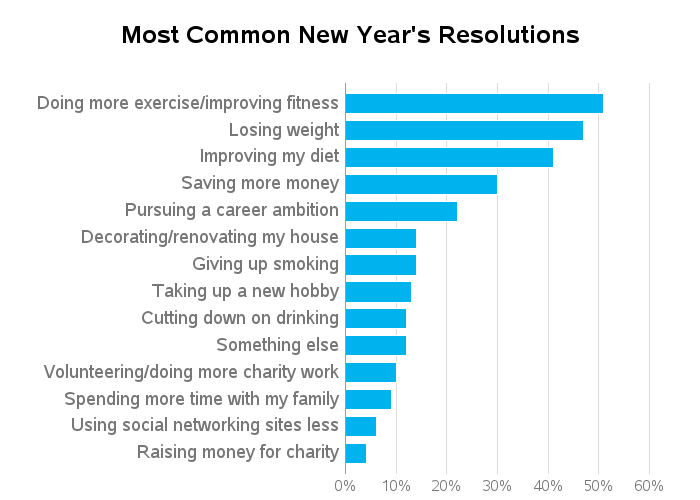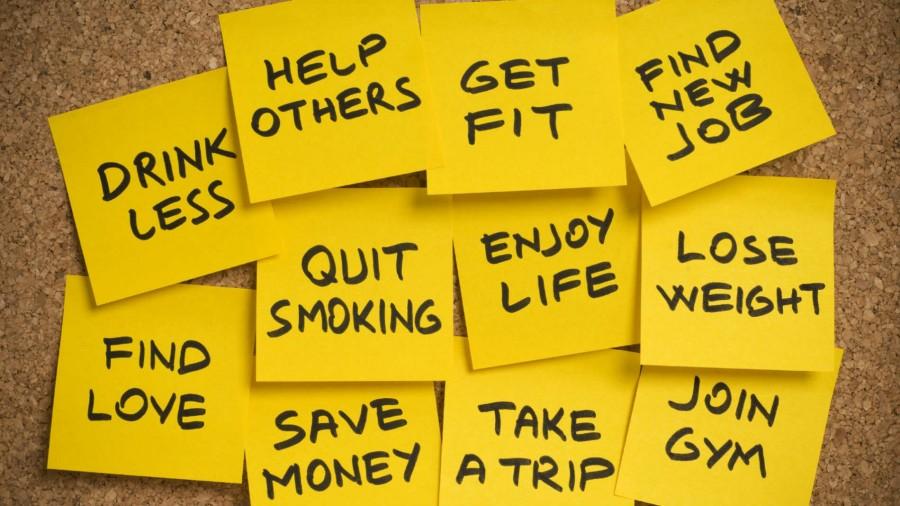New Years resolutions soon dwindle into illusions
Resolutions give Americans the opportunity for self improvement
March 11, 2015
If you are like over 40% of Americans, you would like to lose weight, have more family time, or achieve any number of other resolutions. If so, you likely resolved to do so over two months ago. So, dear reader, be honest: how has your resolution been holding up?
If you’ve already managed to cop out of your moment of resolve, don’t worry, you’re not alone,Ai??especially considering the fact that 25% of people don’t even maintain their resolution through the first week of making it. Indeed, within only four weeks, a third of people give up.
“I make a New Year’s resolution every year almost as a tradition, but I never seem to stay committed,” said senior Mikey Malanga, who had resolved to do get better at snowboarding.
As a tradition, ringing in the New Year dates back 4000 years to the Babylonians, who celebrated it at the first full moon after the spring equinox. The setting of New Year’s resolutions, however, comes a bit later, beginning two millenia ago in Rome, where the resolutions typically had a strong moral flavor and largely revolved around being good to others.

These days, the most popular resolutions are much more concerned with things like physical improvement or personal organization. Indeed, most modern Americans resolve to stay fit and healthy, lose weight, or stop drinking or smoking. Other popular resolutions deal with getting organized, or spending less and saving more.
According to usa.gov, the 13 most popular resolutions in the US are to lose weight, volunteer to help others, quit smoking, get a better education, get a better job, save money, get fit, eat healthy food, manage stress, manage debt, take a trip, reduce/reuse/recycle, and to drink less alcohol.
Given the popularity and strong historical tradition behind New Year’s resolutions, which even have their own mantras and refrains such as “new year, new me,” one would probably expect quite a success rate in terms of people achieving their resolutions. Research at the University of Scranton, however, suggests that just a mere eight percent of people end up achieving their New Year’s goals.
If one wants to be among this elite fractionAi??of people who actually follow through on their resolution, most research suggests that the best approach is to keep the goals simple and short, and to chart one’s progress. Studies also show it is a good idea idea to have a specific plan laid out as soon as possible, and instead of stating one daunting goal, it is better to focus on smaller steps that will help achieve it.
“I think the key to actually keeping any resolution is to pick something reasonable that you can actually see yourself accomplishing,” said senior Benjamin Grunauer.
Another key for success regarding New Years resolutions is to clearly state a goal, rather than having some vague notion of the resolution in your head. Research indicates that people who explicitly make resolutions are 10 times more likely to attain their goals than people who don’t explicitly make resolutions.
“New Year’s resolutions are a great chance for people to start fresh,” saidAi?? senior Hailey Warner, who has managed to keep her resolution. “The key is to just stay committed and motivated.”
She also made her resolution (to not eat sugar) one of the things she gave up for lent, which she said was helpful.
Regardless of what one’s feelings are on New Yearai??i??s resolutions, it is clear that, whether they actually lead to success or not, they are deeply ingrained in our culture, and not going anywhere anytime soon. Ai??If you are one of the few “resolutioners” left standing, stand strong, and prove the naysayers wrong! You only have about nine months to go.




































































































